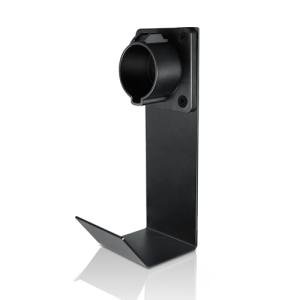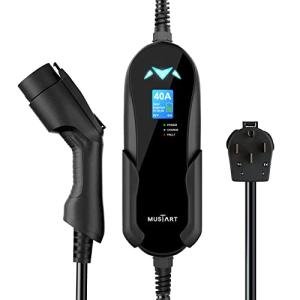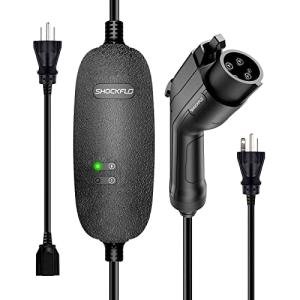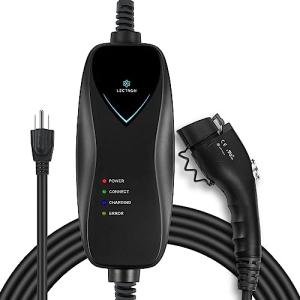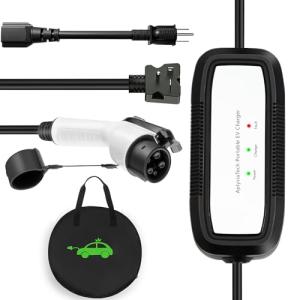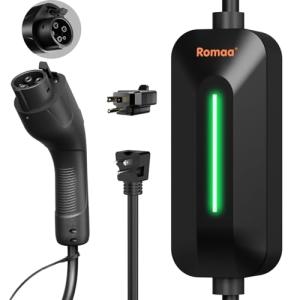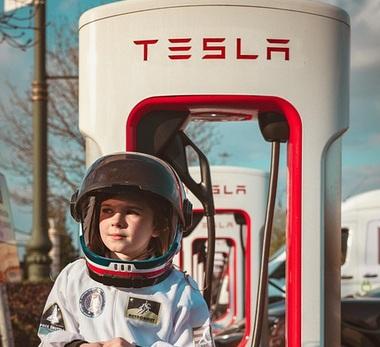When it comes to electric vehicle charger compatibility, knowing the different types of chargers is essential. There are three main charger types you’ll encounter: Level 1, Level 2, and DC fast charging. Each type serves a unique purpose and fits different lifestyles.
Level 1 chargers are the simplest. They plug into a standard household outlet, which means you can charge your EV right at home without any special equipment. If you're not in a hurry and have a little time overnight, this is a hassle-free option. Just keep in mind that it’s the slowest way to charge, adding about 4 to 5 miles of range per hour.
Level 2 chargers kick things up a notch. These require a dedicated 240-volt outlet and can be installed at home or found at public charging stations. They charge your vehicle much quicker, providing around 25 miles of range per hour. If you’re often on the go or like to power up during your errands, this is a solid choice.
Lastly, you have DC fast chargers. These are often found at highway rest stops and charge your vehicle in a hurry—like, really fast. You can get around 80% of your battery filled in just about 30 minutes! Perfect for road trips or urgent charging needs, but they’re less common, and not all EVs are compatible with them.
Understanding electric vehicle charger compatibility helps you make the best choice. Whether you need the convenience of Level 1 for overnight charging, the speed of Level 2, or the quick boost from DC fast charging, knowing what type fits your car and lifestyle will keep you on the move.
How to Check Compatibility
Checking for Electric Vehicle Charger Compatibility is super important before you buy a charger. You want to make sure it works smoothly with your car, right? Here’s how to do it:
First off, know your vehicle's charging port type. Most electric vehicles have a standard connector, like the J1772 for American cars or the CCS for many European models. Just look it up in your car's manual or online. It’s usually pretty straightforward!
Next, check the charger's power output. Chargers come in various strengths, measured in kilowatts (kW). If your car can handle a 7kW charger but you only get a 3kW one, you’ll be waiting a while for a full charge. Make sure the charger matches what your car can handle.
Then, consider the charging speed. Level 1 chargers are the slowest and work like your regular home outlet. Level 2 chargers are much quicker and often found at public charging stations. If you want faster charging, go for a Level 2 or even a DC fast charger if your vehicle supports it.
Finally, look for any special features. Some chargers have smart technology that lets you schedule charging times or monitor usage. If you want convenience and efficiency, these features can be a game changer in your Electric Vehicle Charger Compatibility journey!
Lectron EV Charger Dock and J-Hook Combo
Keep your electric vehicle charged and organized with this convenient dock and J-hook combo
Product information
$18.99
Product Review Score
4.29 out of 5 stars
142 reviewsProduct links
Wattage and Charging Speed Explained
When it comes to electric vehicle (EV) chargers, wattage and charging speed play a huge role in how well your charger works for you. In simple terms, wattage is the amount of power a charger can deliver to your EV. Think of it like the flow of water through a hose—the bigger the hose (or higher the wattage), the faster the water (or charge) gets to your car.
Here’s how it breaks down: chargers usually come in different wattage options, often ranging from 3.7 kW to 22 kW. A higher wattage means quicker charging times. If you have a Level 2 charger that operates at 7.2 kW, you might fuel up your car in about 4 to 6 hours. But if you bump that up to a 22 kW charger, you could cut that time down significantly. Cool, right?
Now, to make sure you're getting the most out of your charger, you need to check the compatibility of your EV with these wattage levels. Some vehicles simply can't handle super high wattage chargers, while others can soak it all up. Knowing your car's charging capabilities will help you choose a compatible charger that meets your needs, maximizing both speed and efficiency.
So, when you're diving into the world of Electric Vehicle Charger Compatibility, always consider the wattage and how it affects your charging time. It makes a big difference in your daily routine, especially if you rely on your EV for work or errands. Finding the right charger sets you up for smooth sailing on the road ahead!
MUSTART Portable 40 Amp Level 2 EV Charger
Charge your electric vehicle quickly and easily, wherever you go
Product information
$219.00
Product Review Score
4.65 out of 5 stars
94 reviewsProduct links
Tips for Choosing the Right Charger
Choosing the right charger for your electric vehicle (EV) can feel overwhelming, but it doesn’t have to be. First off, think about the charging speed you need. If you’re often on the go, consider a Level 2 charger. It’ll get you back on the road quicker than a Level 1 charger, which is perfect for overnight charging at home.
Next, check your vehicle's plug type. Not all electric vehicles use the same plug. Look for the compatible plug and the charger that fits. Many public charging stations list the types of plugs available, so checking ahead of time saves you some hassle. Knowing your EV's requirements helps you avoid compatibility issues.
Don’t overlook the location of your charger. If you usually charge at home, a wall-mounted charger might be ideal. But if you travel frequently, consider a portable charger to use in different locations. Portable chargers can be a game-changer for road trips or trips to the office.
Finally, think about smart features. Some chargers offer mobile apps that let you monitor charging times and costs right from your phone. These features can save you money and time. So when you’re looking into electric vehicle charger compatibility, keep all these factors in mind to find what works best for you.

